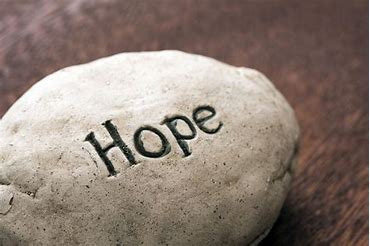Our quest for hope
The new year is a time of hope and possibilities. That is true of all beginnings. We look into the unknown and we dream. We imagine all the things that we want; we think about all of the wonderful things that are possible. Our quest for hope is no less powerful even as we face the continued challenges of the COVID-19 pandemic. If anything, times of challenge heighten our need for hope. But, hope is a misunderstood concept. We cannot bring our hopes to life unless we are clear about what hope is and what it is not. We also need to be clear on how to achieve our hopes.
Wishing vs. hoping
Wishing vs. hoping: Let’s start by addressing the fuzzy language we use to talk about hope. We tend to use the words “wish,” “optimism,” and “hope” as if they are interchangeable. However, these words have very different meanings. A wish refers to a want or a desire. Wishes may be positive (we can want something good to happen for ourselves or for others) or negative (people can want something bad things to happen). Optimism and hope are not desires; they are expectations. Expectations are beliefs that something is possible or is likely to happen. Optimism, in particular, refers to the expectation that some event in the future will turn out well. Hope is similar to optimism in that both involve an expectation that events will turn out positively. The difference between optimism and hope is that hope requires a plan for how to make the positive outcome happen. One way of thinking about the differences between wishes, optimism, and hope is this: the wishful person says, “I want to be healthy.” The optimistic person says, “I believe this is the year when I am going to get healthy.” The hopeful person says, “I believe that this is the year that I am going to get healthy, and to make it happen I have started seeing a nutritionist, I have found a therapist who can help me to examine my unhealthy patterns, and I’ve signed up for a yoga class.”
One critical thing to remember is that hope requires planning. Hope is not passive; it is not something we inherit. Hope is a verb. It is defined by action. It is something that people have to cultivate.
How do we cultivate hope?
So, how do we cultivate hope?
Strategy #1:
Set clear goals. The first step in cultivating hope is to be clear about the goals we want to achieve. Research suggests that it is especially important that we set multiple goals. Studies find that hopeful people set more than one goal so that if one goal proves to be unachievable they can pivot to other goals.
Strategy #2:
Create a roadmap. A key part of hope is what researchers refer to as “pathways thinking.” People who are hopeful set goals and, equally importantly, they map different pathways by which they can achieve those goals.
Strategy #3:
Expect Stress. Life is unpredictable, and stresses, roadblocks, and challenges are part of life’s journey. Sustaining hope requires that we remember that things will go wrong. When stresses happen, hopeful people acknowledge the challenges, pause, and then develop new plans for how to either move forward to achieve their original goals, or they pivot to new goals and map a path to those new outcomes.
Strategy #4:
Challenge unhelpful messages about hope. Over our lifetimes all of us internalize messages about whether it is safe to hope. Some of us are socialized to believe that we should never share our hopes, dreams, or plans with others out of fear that people who are envious will try to undermine us. Some people fear that if they allow themselves to want something they will be humiliated or crushed if they fail to achieve those outcomes. Healthy hope requires that we acknowledge the messages that we have learned from family, friends, our culture, and our own life experiences about hope. We have to discard the messages that create fear and shame and that prevent us from setting meaningful expectations. We also have to discard messages that paralyze us or block us from creating road maps to our goals.
Strategy #5:
Remember that you always have options. Remaining hopeful requires that we stay mindful that we always have options. Knowing that we have options allows us to make new choices when challenges emerge.
Embrace hope as the new year begins. Your dreams depend on it.
Written By: Jacqueline Mattis, PHD

BIO: Jacqueline Mattis, PhD is Dean of the School of Arts and Sciences and Professor of Psychology at Rutgers University-Newark. Her research focuses on the role of religion and spirituality in the lives of African American and Afri-Caribbean youth and adults, and on the factors that are associated with positive psychological and psychosocial development of urban-residing African American and AfriCaribbean youth and adults.








Leave a Reply